Peugeot 308 vs Toyota Prius - Differences and prices compared
Compare performance (195 HP vs 223 HP), boot space and price (29200 £ vs 39400 £ ) at a glance. Find out which car is the better choice for you – Peugeot 308 or Toyota Prius?
Costs and Efficiency:
Price and efficiency are often the first things buyers look at. Here it becomes clear which model has the long-term edge – whether at the pump, the plug, or in purchase price.
Peugeot 308 has a distinct advantage in terms of price – it starts at 29200 £ , while the Toyota Prius costs 39400 £ . That’s a price difference of around 10183 £.
Fuel consumption also shows a difference: Toyota Prius manages with 0.50 L and is therefore clearly more efficient than the Peugeot 308 with 2.30 L. The difference is about 1.80 L per 100 km.
As for electric range, the Peugeot 308 performs convincingly better – achieving up to 450 km, about 364 km more than the Toyota Prius.
Engine and Performance:
Power, torque and acceleration are the classic benchmarks for car enthusiasts – and here, some clear differences start to show.
When it comes to engine power, the Toyota Prius has a somewhat edge – offering 223 HP compared to 195 HP. That’s roughly 28 HP more horsepower.
In acceleration from 0 to 100 km/h, the Toyota Prius is to a small extent quicker – completing the sprint in 6.80 s, while the Peugeot 308 takes 7.60 s. That’s about 0.80 s faster.
In terms of top speed, the Peugeot 308 performs distinct better – reaching 225 km/h, while the Toyota Prius tops out at 177 km/h. The difference is around 48 km/h.
Space and Everyday Use:
Cabin size, boot volume and payload all play a role in everyday practicality. Here, comfort and flexibility make the difference.
Both vehicles offer seating for 5 people.
In curb weight, Peugeot 308 is somewhat lighter – 1453 kg compared to 1620 kg. The difference is around 167 kg.
In terms of boot space, the Peugeot 308 offers evident more room – 412 L compared to 284 L. That’s a difference of about 128 L.
When it comes to payload, Peugeot 308 noticeable takes the win – 503 kg compared to 375 kg. That’s a difference of about 128 kg.
Who wins the race in the data check?
The Toyota Prius is decisively ahead in the objective data comparison.
This result only shows which model scores more points on paper – not which of the two cars feels right for you.
Costs and Consumption
View detailed analysis
Engine and Performance
View detailed analysis
Dimensions and Body
View detailed analysis

Toyota Prius
Peugeot 308
The Peugeot 308 brings a sleek, feline profile and an unexpectedly upscale cabin, with clever packaging and materials that feel a touch more premium than you might expect. It’s composed on the road, easy to live with for daily life, and a smart choice if you want a stylish hatch that still behaves when the road gets interesting.
details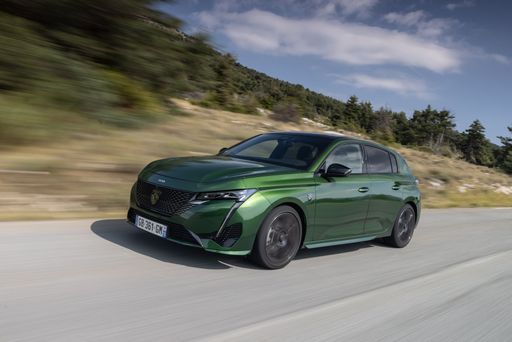
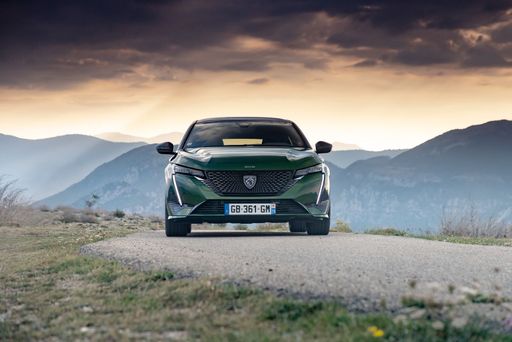
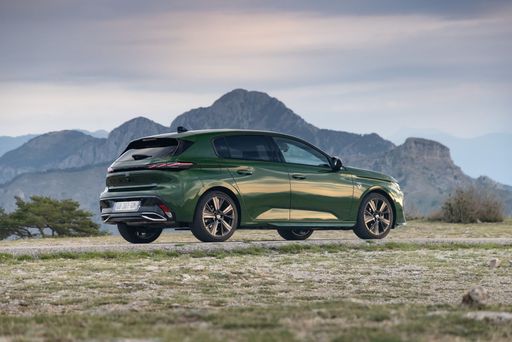
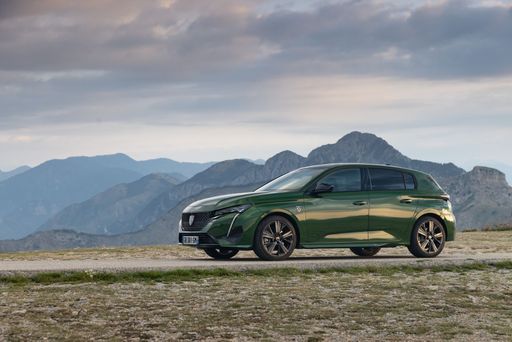
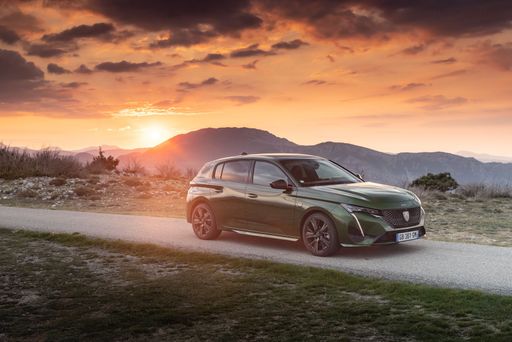
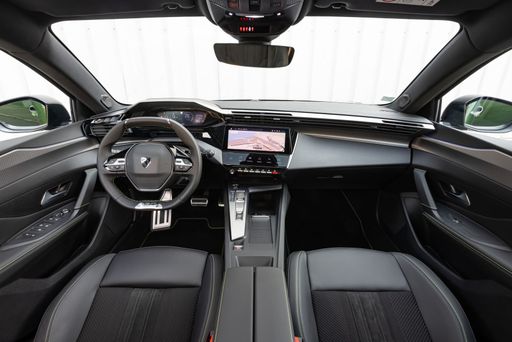
Toyota Prius
The Prius glides through traffic like a wise commuter's secret weapon, balancing miserly running costs with an unflappable sense of reliability. It's not a thrill seeker, but its roomy cabin, sensible packaging and low-stress driving personality make it a brilliant choice for buyers who value peace of mind over pulse-raising performance.
details



Costs and Consumption |
|
|---|---|
|
Price
29200 - 42600 £
|
Price
39400 - 45800 £
|
|
Consumption L/100km
2.3 - 5.1 L
|
Consumption L/100km
0.5 - 0.7 L
|
|
Consumption kWh/100km
15.60 kWh
|
Consumption kWh/100km
-
|
|
Electric Range
78 - 450 km
|
Electric Range
72 - 86 km
|
|
Battery Capacity
0.40 kWh
|
Battery Capacity
-
|
|
co2
0 - 133 g/km
|
co2
12 - 17 g/km
|
|
Fuel tank capacity
42 - 52 L
|
Fuel tank capacity
40 L
|
Dimensions and Body |
|
|---|---|
|
Body Type
Hatchback
|
Body Type
Hatchback
|
|
Seats
5
|
Seats
5
|
|
Doors
5
|
Doors
5
|
|
Curb weight
1453 - 1749 kg
|
Curb weight
1620 - 1630 kg
|
|
Trunk capacity
314 - 412 L
|
Trunk capacity
284 L
|
|
Length
4367 mm
|
Length
4599 mm
|
|
Width
1852 mm
|
Width
1782 mm
|
|
Height
1438 mm
|
Height
1470 mm
|
|
Max trunk capacity
1258 - 1323 L
|
Max trunk capacity
-
|
|
Payload
430 - 503 kg
|
Payload
365 - 375 kg
|
Engine and Performance |
|
|---|---|
|
Engine Type
Petrol MHEV, Diesel, Plugin Hybrid, Electric
|
Engine Type
Plugin Hybrid
|
|
Transmission
Automatic
|
Transmission
Automatic
|
|
Transmission Detail
Dual-Clutch Automatic, Automatic Gearbox, Reduction Gearbox
|
Transmission Detail
CVT
|
|
Drive Type
Front-Wheel Drive
|
Drive Type
Front-Wheel Drive
|
|
Power HP
131 - 195 HP
|
Power HP
223 HP
|
|
Acceleration 0-100km/h
7.6 - 10.6 s
|
Acceleration 0-100km/h
6.80 s
|
|
Max Speed
170 - 225 km/h
|
Max Speed
177 km/h
|
|
Torque
230 - 300 Nm
|
Torque
-
|
|
Number of Cylinders
3 - 4
|
Number of Cylinders
4
|
|
Power kW
96 - 144 kW
|
Power kW
164 kW
|
|
Engine capacity
1199 - 1598 cm3
|
Engine capacity
1998 cm3
|
General |
|
|---|---|
|
Model Year
2025 - 2026
|
Model Year
2023
|
|
CO2 Efficiency Class
C, D, B, A
|
CO2 Efficiency Class
B
|
|
Brand
Peugeot
|
Brand
Toyota
|
Is the Peugeot 308 offered with different drivetrains?
Available configurations include Front-Wheel Drive.
